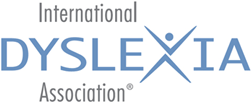Frequently Asked Information
in English & Urdu
What is remedial education and why is it important?
Remedial education, also known as basic skills development, is for students who need more support in core areas like reading and math. Students may qualify for remediation if they have poor performance in those areas. Remedial education is also for students who have average or higher intellectual abilities but are not performing well in school.
What is the distinction between special and remedial education?
Special education is not the same as remedial education. Remedial education re-teaches what has already been learned. This may be required by various pupils for various reasons. Some students have special needs. Some of them don’t. Special education, unlike remedial programs, is only for pupils with disabilities. It is specific to each learner and is continuing. This type of one-on-one assistance is not available to all difficult students.
What exactly is the goal of remedial education?
Some learning difficulties that may indicate a need for remedial education include:
- Poor comprehension of coursework
- Lack of study motivation
- Low self-confidence in reading or problem solving
- Viewing reading as an unpleasant activity
What are the benefits of remedial education?
- Dyslexic Students’ Remedial Education: Another benefit of remedial teaching is that it can assist dyslexic students to overcome reading challenges by rewiring brain connections. Extensive hours of remedial teaching have been found in studies to aid students with dyslexia-related reading difficulties. Increased brain connections and improved reading competence may be among the long-term benefits.
- Developing Better Communication Skills: In the classroom, students with speech impairments may have difficulty communicating. Speech difficulties are frequently developmental, and remedial reading training may help. Students with communication difficulty due to speech-related disorders may benefit from remedial phonics and other verbal activities while teaching reading.
- Motivation and Behavior: Because of their dissatisfaction, students who fall behind in basic academic activities may develop behavioral problems. This can also result in a loss of drive and a desire to give up. The benefits of remedial education can assist pupils in gaining general knowledge that can be applied to all subject areas. The training may also aid in reducing feelings of inadequacy, which can lead to problems with behavior or motivation.







